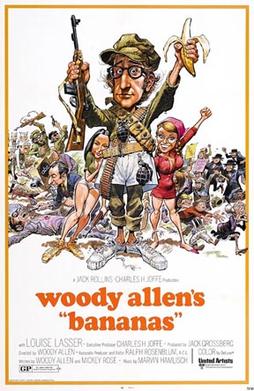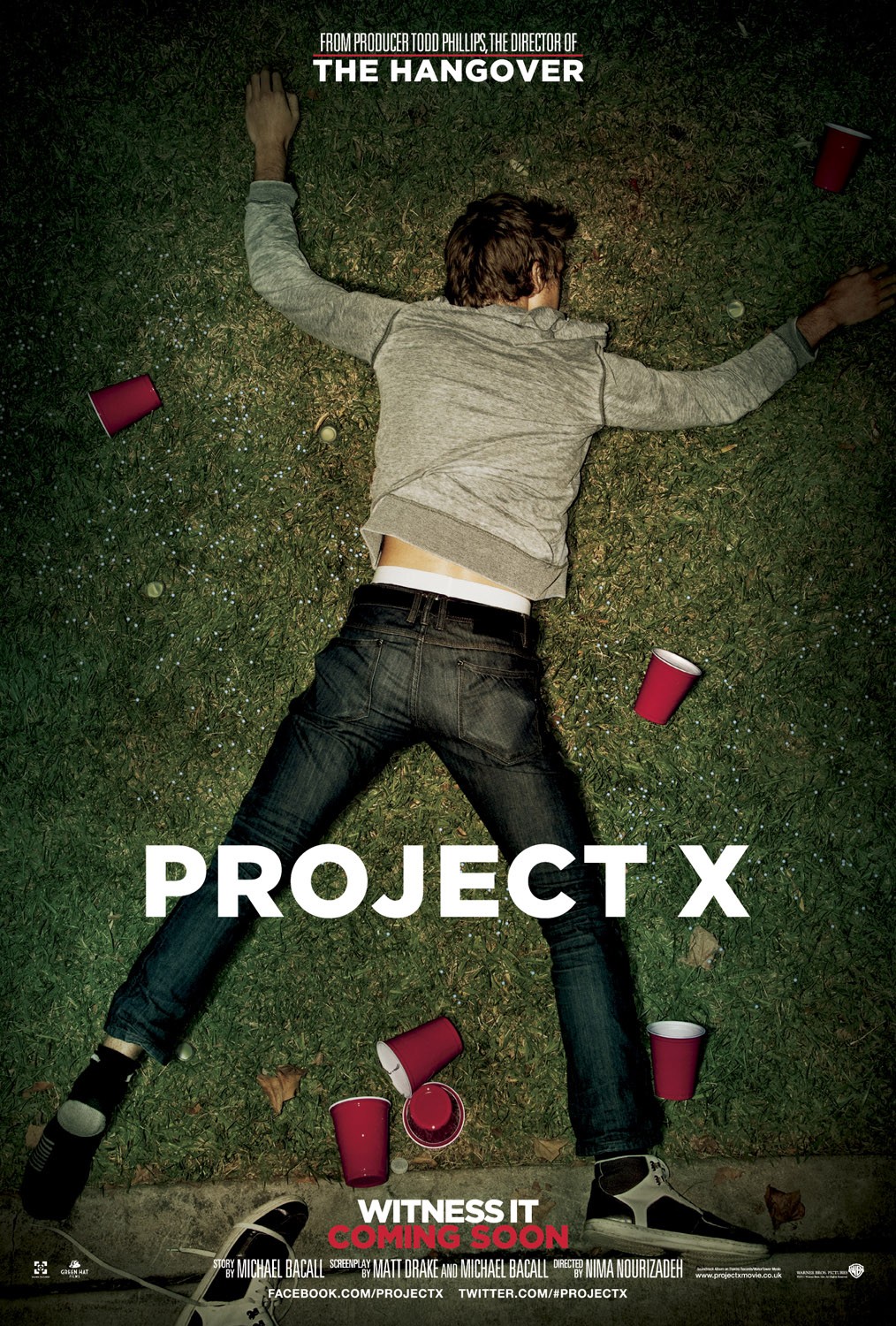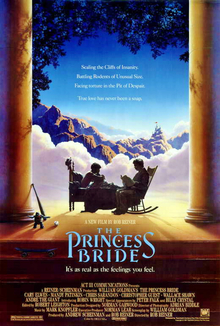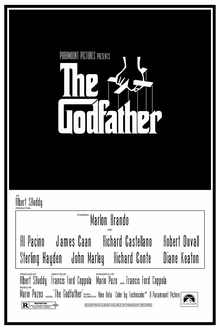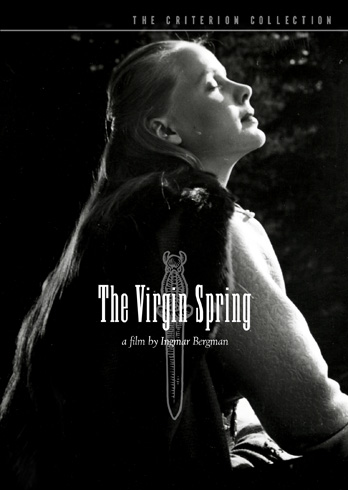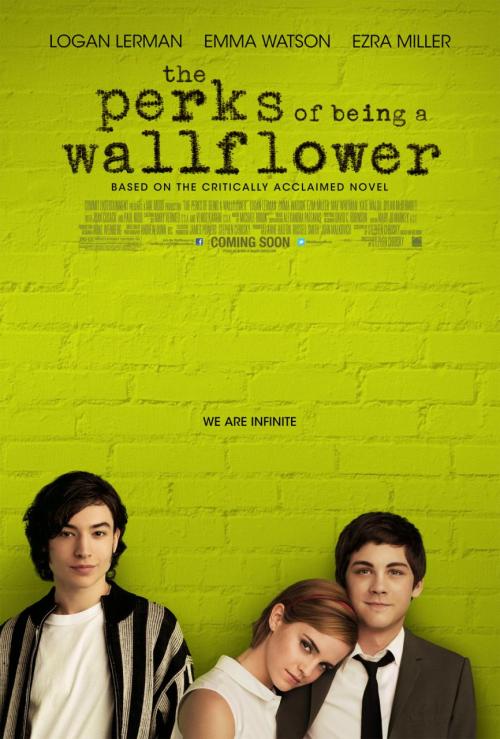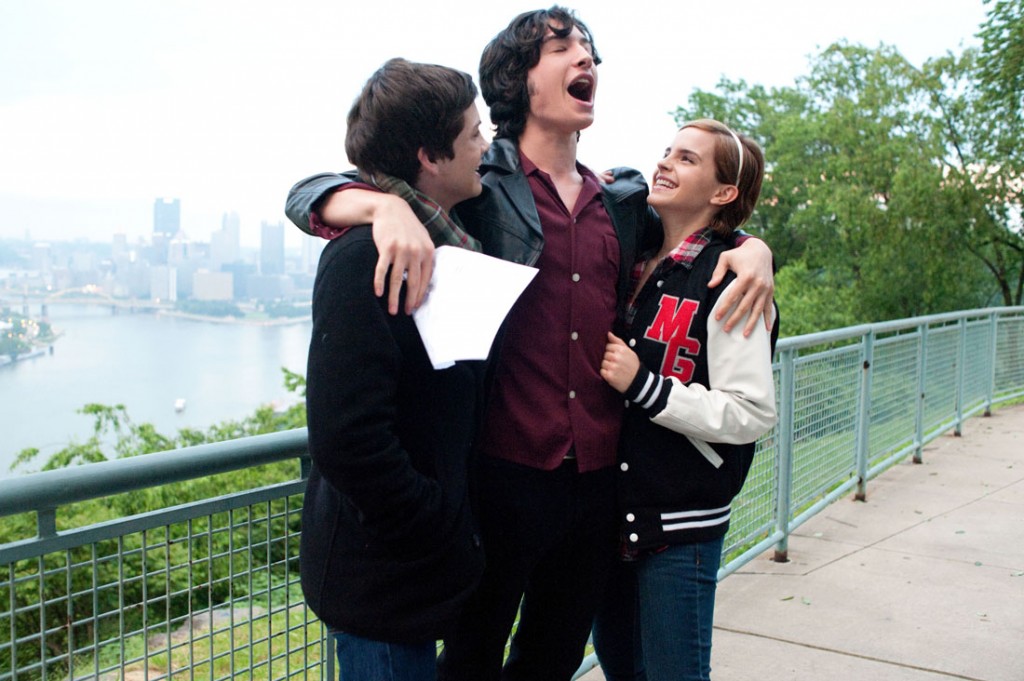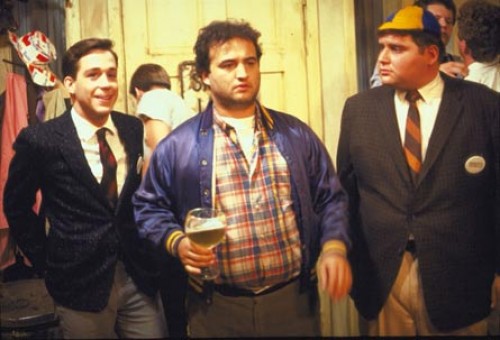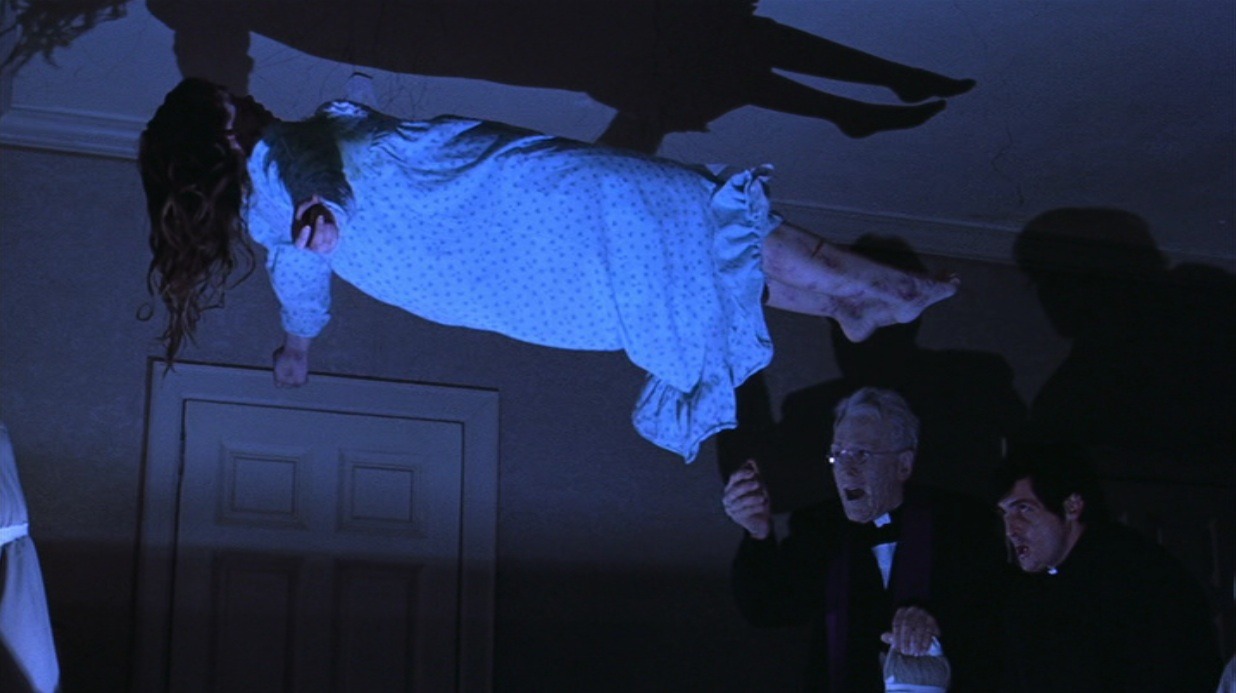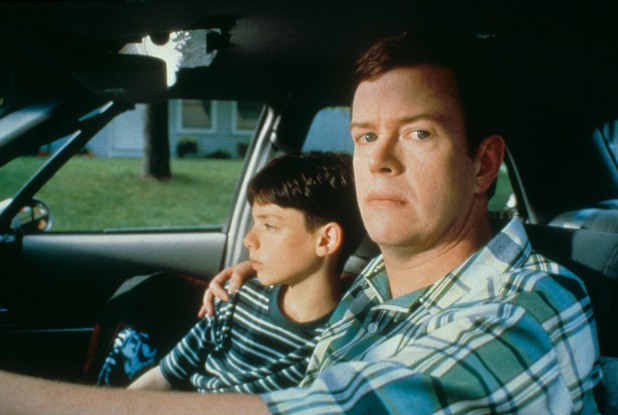In July 2010, I compiled a list of my top 10 favourite films. As a 17 year-old, I enjoyed watching movies, although my appreciation of the medium wasn't as intense or as informed as it is now. Here is the list from 2010:
1. American Beauty (Sam Mendes, 1999)
2. The Shining (Stanley Kubrick, 1980)
3. SubUrbia (Richard Linklater, 1996)
4. The Pursuit of Happyness (Gabriele Muccino, 2006)
5. Groundhog Day (Harold Ramis, 1993)
6. Superbad (Greg Mottola, 2007)
7. Rear Window (Alfred Hitchcock, 1954)
8. Sideways (Alexander Payne, 2004)
9. The Breakfast Club (John Hughes, 1985)
10. Rosemary's Baby (Roman Polanski, 1968)
It's been a bit over two years since I made that list, and I have since seen some marvellous films that have been good enough to rank among my favourites. So, I've decided to make a new list, but this time, I'm extending the list to my top 20. It would be excruciating to merely acknowledge ten films, when at least ten more mean just as much to me. Note that this is a list of my 20 favourite films, and not my opinion of the 20 best films ever made. Eight out of ten titles from my 2010 list have made the new list, although most of those are in a different position. Let's begin at #20!
20. Mysterious Skin (Gregg Araki, 2004)
Joseph Gordon-Levitt gives the performance of his career in this raw, often disturbing drama about two young adult males who are brought together because of something that happened during their childhood. The 'something' I speak of is very unpleasant, and causes Neil (Gordon-Levitt) to become a hustler and Brian (Brady Corbet) to develop an obsession with aliens. As I said, the material is difficult to watch at times, but there's an air of sweet melancholy that pervades this film, and it will linger in your mind for days. I also recommend Scott Heim's novel of the same name, which was the inspiration for this film.
19. The Exorcist (William Friedkin, 1973)
It's one of the first horror movies I ever saw, and still the scariest movie I've ever seen. Sure, some parts are funny on repeat viewings, but at its core, The Exorcist is one terrifying film that was ahead of its time. Many people refuse to watch it because it's too much for them to handle. I can understand that, although if you're one of those people, I strongly encourage you to give it a go (and then sleep with a lamp next to you if necessary). The only bad thing about this film is that it has indirectly inspired a bunch of mediocre to awful films about exorcisms or demonic possessions.
18. Rosemary's Baby (Roman Polanski, 1968)
If The Exorcist is scary because of what we see, Rosemary's Baby is scary because of what we don't see. This is easily one of the most suspenseful films I've ever seen, and the pacing is absolutely perfect. I've only seen it once, but it impacted me so much (probably because I watched it after midnight). Mia Farrow is amazing, and Ruth Gordon (who won an Oscar for this) is extremely creepy as her mysterious neighbour. The ending disappointed me a little bit, but nonetheless, this is an absolute must for any horror/suspense enthusiasts.
17. Annie Hall (Woody Allen, 1977)

Many regard this as Woody Allen's best film. I disagree, although I think it's in his top three. This film signalled a shift in the trajectory of Allen's career. Up until Annie Hall, Allen had made films such as Bananas and Love and Death, where the plot was either simple or non-existent, and the focus was on the jokes. With Annie Hall, Allen relinquished his "comedian with a camera" tag and proved he could make a film that was not only very funny, but also thematically rich and heartfelt. Unlike many modern romantic comedies which celebrate the blossoming of a relationship, Annie Hall looks back on a failed relationship between Alvy (Woody Allen) and Annie (Diane Keaton) and laments what could have been. The film is notable for Allen's camera trickery, and there are some techniques here that no one would have expected from Allen at the time. This film beat out Star Wars for Best Picture at the 1978 Academy Awards, and collected three other awards for Best Director, Best Actress (Keaton) and Best Original Screenplay. If you need more convincing to see Annie Hall, it features a young Christopher Walken in one of the funniest scenes in the history of cinema.
16. Scream (Wes Craven, 1996)
Scream is one of those movies that is scarier than you actually expect. The poster suggests it's just another run-of-the-mill slasher flick, but it's far from that. Wes Craven is playful and the material is never too dark, but when it wants to be, Scream can be incredibly unsettling. The opening scene featuring Drew Barrymore (pictured above) is probably my favourite opening scene of all time, and a terrifying one at that. Craven is a genius who knows what horror fans like, and this film is an homage to everything the slasher subgenre is about. A quintessential 90s film.
15. Happiness (Todd Solondz, 1998)
Countless films have been made about the seedy underbelly of American suburbia, but few have been as effective as Happiness—one of the most shocking films you will ever see. Solondz examines the lives of several characters whose sources of happiness are things that society frowns upon. This film is not for everybody, although it's sorely misunderstood by people who think it glorifies paedophilia. The ensemble cast is a pleasure to watch, with excellent performances from the likes of Dylan Baker, Philip Seymour Hoffman and Jane Adams. This is a film that doesn't waste a single one of its 134 minutes.
14. A Nightmare on Elm Street (Wes Craven, 1984)
This film is probably the reason I love slasher films. I believe I saw it for the first time when I was six years old, and it scared the absolute hell out of me. It was then I realised that fear can feel good when it's caused by a movie. The most frightening thing about Freddy Krueger is that he strikes when you're dreaming. As a result, the film works on two levels. It's not only the slasher element that scares you, but also the prospect that sleeping could lead to death. The idea of prolonging your body's natural physiological processes is scary, because the thing about sleep is that it is inevitable. You know Freddy is going to come eventually; it's just a matter of when. The premise could have failed in a novice's hands, but Craven hits all the right notes to create a horror film that is just as fun as it is scary.
13. Sideways (Alexander Payne, 2004)
Alexander Payne is a master of blending humour and pathos, and I think Sideways is his best film to date. You do not have to have an interest in viticulture to enjoy this film. It's about more than two guys taking a trip to the vineyards of California. It's about friendship, love, infidelity and commitment. The remarkable thing about Sideways is how true it is to real life. Even the most zany elements of the plot are things you could imagine real people doing. Nothing's implausible. The highlight of the film is a conversation about "the life of wine" between Miles (Paul Giamatti) and Maya (Virginia Madsen), although the interplay between Giamatti and Thomas Haden Church is wonderful throughout.
12. Home Alone 2: Lost in New York (Chris Columbus, 1992)
No; I'm not kidding. I love this movie so, so much. It's one of the movies I grew up on, and I will never tire of watching it. As much as I like the first Home Alone, I think Lost in New York is the best in the series (do parts 3 and 4 even matter?). The crucial element in this film is New York City. The city becomes a character in itself, and Chris Columbus makes it look gigantic, employing plenty of wide shots and establishing shots. Macaulay Culkin is very likeable as Kevin, and Joe Pesci and Daniel Stern are hilarious as bad guys Harry and Marv. Brenda Fricker is wonderful as the Central Park pigeon lady, and there's a wonderful scene between her and Culkin in the loft of Carnegie Hall which spoke to me as a young boy. I honestly think this movie deserves way more kudos than it currently receives.
11. Mulholland Dr. (David Lynch, 2001)
You will not understand it. You may not even enjoy it. But, if you do not watch it, you will miss out on one of the strangest, most hypnotic film experiences possible. Watch it alone. Watch it late at night, with no sources of light around you except for your television. This is an absolute gem, and although I've only seen it once, I will never forget how it made me feel.
10. Hannah and Her Sisters (Woody Allen, 1986)
I believe this is Allen's best film. There are so many important characters in the film, and Allen manages to successfully juggle them so that all the different storylines matter and eventually connect. The interplay between the three sisters (Mia Farrow, Barbara Hershey and Dianne Wiest) makes for compelling viewing, while Allen gives a top-notch performance as Mickey—a neurotic hypochondriac. At first I thought Michael Caine was an unusual choice to play Elliot, but as the film progresses, he eases into the role. Although the film is entitled Hannah and Her Sisters, it is the character of Mickey who is most interesting to watch. His search for meaning in life provides plenty of laughs and is some great food for thought.
9. Stand by Me (Rob Reiner, 1986)
Stand by Me is the best film about growing up I have ever seen. There is not a false note throughout it. I was able to relate to everything the film had to say. There are certain films that make you nostalgic for a time when you weren't even alive. That's how I feel about Stand by Me. I wasn't alive in 1959, but by the time the film was over, I felt as though I experienced everything Gordie, Chris, Teddy and Vern went through. You know how you get up to some crazy shit with your friends on the verge of your teenage years? Well, this film is a tribute to that shit. And I use the word 'shit' with intent. It's how the characters in the film would talk. I dare you to not tear up when, at the end of the film, you read the following: "I never had any friends later on like the ones I had when I was twelve. Jesus, does anyone?" That is painfully true.
8. Groundhog Day (Harold Ramis, 1993)
This film has a brilliant premise, and is entertaining from start to finish. Bill Murray's deadpan humour is hilarious, and Andie MacDowell is a convincing love interest. The film works so well because of its dramatic irony. We can appreciate the plot on a level Phil's (Bill Murray) acquaintances cannot. It's a clever film because it never explains why Phil had to live the same day over and over again. Sure, he was very selfish and the recurrence of February 2 was his payback for that, but that's all we really know. I like how there's some ambiguity there.
7. Lost in Translation (Sofia Coppola, 2003)

This is probably the most beautiful film about human connection I've ever seen. It's about two lonely people—one an aging actor; the other a young, married college graduate—who find each other in a city where everything is, well, lost in translation. The city is Tokyo, and good lord, it has never looked more spectacular. This movie works for so many reasons, but the main one is that Bob (Bill Murray) and Charlotte (Scarlett Johansson) never turn their relationship into an erotic one. This is not about sex. This is about companionship in a place where you can't really turn to anyone. The contrast between Bob's life experience and Charlotte's naivety is interesting to observe, and makes their relationship all the more intriguing. Lost in Translation is not always entertaining, but it is never dull. Even when nothing's happening, everything is so aesthetically pleasing that you can't afford to look away. It makes me sad that this is a fictitious film. I fell in love with these two souls, but I've got to accept they don't even exist in the real world. One last thing: the karaoke scene is very, very special.
6. The Breakfast Club (John Hughes, 1985)
John Hughes had a gift for making films that touched teenage audiences, and I have no doubt that The Breakfast Club helped many teens around the world come to terms with adolescence. It's such a simple set-up: five students meet at their high school on a Saturday morning for detention. There's the criminal (Judd Nelson), the athlete (Emilio Estevez), the basket-case (Ally Sheedy), the princess (Molly Ringwald) and the brain (Anthony Michael Hall). As the day progresses, the five students realise how superficial their outward stereotypes are, and that they are all quite similar at their core. What makes this film so popular is that, no matter who you are, you will be able to empathise with at least one of the students. The dialogue hits so close to home, and is often outrageously funny. You forget that the five students are played by actors. They feel so damn real. The late Paul Gleason is wonderful as the short-tempered Principal Vernon.
5. Eyes Wide Shut (Stanley Kubrick, 1999)
Stanley Kubrick died before Eyes Wide Shut was released, but I am so grateful that he gave us this sensuous, mysterious film as his parting gift. This film has an isolating effect on me. When Bill (Tom Cruise) roams the streets of New York at night, I too feel like a lone wanderer. In a way, the film feels like a companion piece to T.S. Eliot's The Love Song of J. Alfred Prufrock. Texturally, it is similar to Lynch's Mulholland Dr. Most people remember it for the orgy scenes, but the film is so much more than that. The last word uttered in this film is "Fuck", courtesy of Nicole Kidman. I feel as though that is a reasonable reaction to the film's cessation, for it will leave you in absolute awe.
4. Superbad (Greg Mottola, 2007)
If Stand by Me is a great film about growing up, Superbad is a great film about hanging out. It may surprise you that I value this movie so much, but I'll try to explain why I love it. The dialogue is natural. This is how many teenage guys talk to each other, and it's no surprise that Seth Rogen and Evan Goldberg began working on the script when they were 13 (probably after jerking off to some Playboy magazines). The film never struggles to be entertaining. I love its fast pace. There's always something happening, and one mishap usually leads to another. While not exactly set over one evening, it almost feels like it, and this creates a sense of "being there". After all is said and done, it's the friendship between Seth (Jonah Hill) and Evan (Michael Cera) that matters the most. Yes, it's very crude, but Superbad is also rather tender and is not only a movie for adolescent males.
3. Rear Window (Alfred Hitchcock, 1954)
My favourite Hitchcock, and quite possibly the best. It's a film that makes voyeurs of us all, and makes us feel as bound as its protagonist (James Stewart). I've seen it three times, and my appreciation has grown with each viewing. Raymond Burr is terrifying as Lars Thorwald, while Grace Kelly is sublimely seductive as Lisa. Thelma Ritter provides brilliant comic relief as Selma. It doesn't matter that the film is so confined in its location, for we use our imagination to widen the scope of things. It's one of those films where a grand climax seems inevitable, and Rear Window does not disappoint.
2. The Shining (Stanley Kubrick, 1980)
Here's yet another film that terrified me as a youngster. I stumbled across this on cable TV when I was six or seven, and it's a miracle I did not defecate in my pants. In The Shining, the Overlook Hotel is the main character. Kubrick takes us through its long hallways and we're always afraid of what's around the corner. The place is so big that something ominous can't NOT be hiding in there. There are so many things in this film that only Kubrick could make scary—most notably the man performing fellatio in a bear suit. I just adore this film. I think of it as a nightmare conceptualised for the big screen.
1. American Beauty (Sam Mendes, 1999)

First of all, if you didn't already know this is my favourite film of all time, then I can only assume you've been living under a rock for the past two years. This is one of the best directorial debuts of all time. Honestly, how the fuck do you make a piece of art like this on your first go? And I know not everyone considers it 'art', but this is my list, so I shall consider it so. In
American Beauty, we have several people who start out as caricatures but end up as human beings. The myth of the idyllic American suburbia is torn apart, just as it was in Solondz's
Happiness and Lynch's
Blue Velvet. It's a film about appearances; about convincing ourselves that we are someone else. It's poignant and melodic, and it features a final monologue that will resonate with you for a long, long time. Best of all, it's very accessible. Here are characters you can relate to. You will see your own shortcomings in them. I've said it countless times already, but just see this film. You'll have a wonderful time. I've written about the film in greater detail
here.
